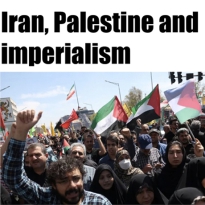News
You are here
How 'new' will the Partnership be?

October 1, 2014
The launch of “Canadians for a New Partnership” (CNP) took place September 4, 2014 amidst much media fanfare. The press conference featured a number of well known, former political leaders including former Assembly of First Nations Grand Chief Ovide Mercredi and former Prime Ministers Paul Martin (Liberals) and Joe Clark (Conservatives).
Why a new partnership is needed
The stated purpose of the partnership is to “build the strong economy and values-based society that will benefit this and future generations.” The mission statement says that to reach this vision, “We will establish and support a broad-based, inclusive, leadership initiative to engage Canadians in dialogue and relationship building aimed at building a new partnership between First Peoples and other Canadians. This initiative holds the promise of better living conditions, education, and economic opportunities for First Peoples, which must be the tangible results of that new partnership.”
Stephen Kakfwi, former premier of the Northwest Territories, and President of the NWT Dene Nation, is credited with initiating this partnership. Indigenous supporters include Elders, community leaders and activists like Chelsea Vowel (Idle No More) and Cindy Blackstock (First Nations Child and Family Caring Society, currently involved in a human rights case regarding lack of funding for on reserve child and family services).
Funding is from social service foundations, some universities, and the Northwest Territories government. The main activity to build partnership will be to hold lectures and discussions.
What difference will this make?
Any effort to have non-Indigenous people understand and respect treaties and the right of self-determination for Indigenous peoples is to be applauded. The upcoming release of the report of the Truth and Reconciliation Commission, which will document the personal stories and impacts of residential schools, will provide a great opportunity to build on the desire by a growing number of people in Canada and Quebec to ensure justice for Indigenous peoples.
The CNP website information makes reference to “respect for treaty rights”, the main focus appears to be on education and jobs. But the question should always be: under whose control? There is nothing about justice for missing and murdered Indigenous women, or for stopping dangerous resource extraction where treaties or land claims are in place.
While Paul Martin and Joe Clark may have had personal epiphanies about the rights of Indigenous peoples and the role that non-Indigenous allies can play in ensuring justice, their past actions in government completely undermined such fairness. As finance minister in the 1980s, Martin offloaded federal costs to the provinces, leading to cuts to public services from which we have never recovered. And Indigenous peoples were particularly affected by these cuts, in ways that that Martin’s later “Kelowna Accord” could never compensate for. (The Accord would have been an infusion of $6 billion into funding for Indigenous communities, but was subsequently rejected by Harper.)
Lectures and discussions groups might be a starting point for people just beginning to learn about the history of both injustice against and resistance by Indigenous peoples. But if there is no change to practice, i.e. in active solidarity with self-determination struggles, then the CNP will be no more than a talk shop.
We can be more impressed with grass roots efforts at outreach and reconciliation e.g. by Idle No More, faith communities, trade unions, and the climate justice movement. Such efforts are still in their early days. But leaders from these movements are absent from the CNP Board of Directors.
What should we watch for?
It will be up to Indigenous communities to define success for this partnership endeavor. So we should look to commentary from trusted Indigenous spokespersons as to the processes and the impact that CNP is having over time. Perhaps we could look for things like the number of Indigenous participants, statements by Indigenous participants that they control the agenda, and improvements in alliances and joint actions around common struggles.
In the meantime, we should continue to actively show solidarity with current Indigenous struggles and not wait for the CNP.
Section:










